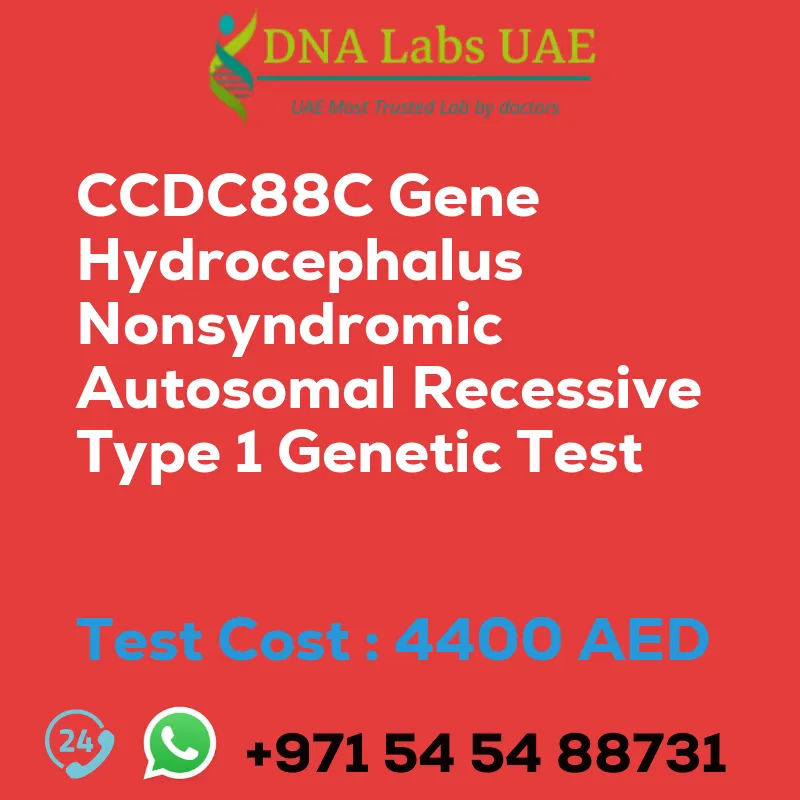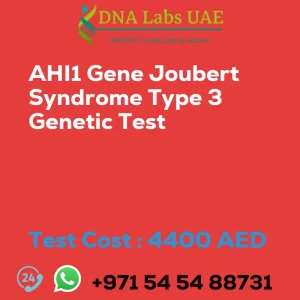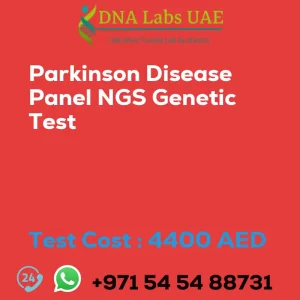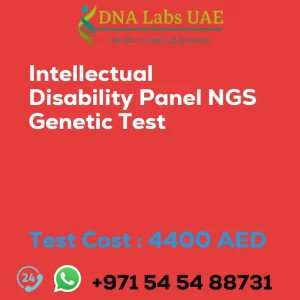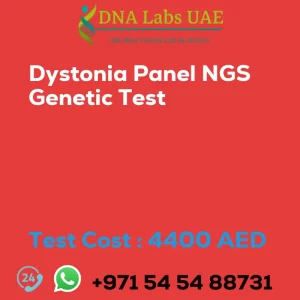CCDC88C Gene Hydrocephalus Nonsyndromic Autosomal Recessive Type 1 Genetic Test
Are you concerned about hydrocephalus? DNA Labs UAE offers the CCDC88C Gene Hydrocephalus Nonsyndromic Autosomal Recessive Type 1 Genetic Test to provide you with valuable insights into this condition.
Test Components and Price
- Test Name: CCDC88C Gene Hydrocephalus Nonsyndromic Autosomal Recessive Type 1 Genetic Test
- Price: 4400.0 AED
- Sample Condition: Blood or Extracted DNA or One drop Blood on FTA Card
- Report Delivery: 3 to 4 Weeks
- Method: NGS Technology
- Test Type: Neurological Disorders
- Doctor: Neurologist
- Test Department: Genetics
Pre Test Information
Prior to undergoing the CCDC88C Gene Hydrocephalus Nonsyndromic Autosomal Recessive Type 1 Genetic Test, it is important to provide the clinical history of the patient. Additionally, a genetic counseling session will be conducted to draw a pedigree chart of family members affected by CCDC88C Gene Hydrocephalus Nonsyndromic Autosomal Recessive Type 1.
Test Details
The CCDC88C gene is associated with hydrocephalus, nonsyndromic, autosomal recessive type 1. This genetic condition is inherited in an autosomal recessive manner, meaning that both copies of the mutated gene must be inherited (one from each parent) for the condition to develop.
NGS (Next-Generation Sequencing) genetic testing is utilized in this test. NGS technology allows for the simultaneous analysis of multiple genes. In the context of hydrocephalus, NGS genetic testing can identify mutations or variations in the CCDC88C gene that may contribute to the development of the condition.
The CCDC88C Gene Hydrocephalus Nonsyndromic Autosomal Recessive Type 1 Genetic Test not only confirms a diagnosis of hydrocephalus but also provides crucial information about the specific genetic cause of the condition. This test is valuable for genetic counseling as it helps determine the risk of passing on the condition to future generations.
It is important to note that while NGS genetic testing is a powerful diagnostic tool, it may not always identify the underlying genetic cause. Therefore, the interpretation of genetic test results should always be done in consultation with a healthcare professional specializing in genetics.
| Test Name | CCDC88C Gene Hydrocephalus nonsyndromic autosomal recessive type 1 Genetic Test |
|---|---|
| Components | |
| Price | 4400.0 AED |
| Sample Condition | Blood or Extracted DNA or One drop Blood on FTA Card o |
| Report Delivery | 3 to 4 Weeks |
| Method | NGS Technology |
| Test type | Neurological Disorders |
| Doctor | Neurologist |
| Test Department: | Genetics |
| Pre Test Information | Clinical History of Patient who is going for CCDC88C Gene Hydrocephalus, nonsyndromic, autosomal recessive type 1 NGS Genetic DNA Test A Genetic Counselling session to draw a pedigree chart of family members affected with CCDC88C Gene Hydrocephalus, nonsyndromic, autosomal recessive type 1 |
| Test Details |
The CCDC88C gene is associated with a genetic condition called hydrocephalus, nonsyndromic, autosomal recessive type 1. This type of hydrocephalus is inherited in an autosomal recessive manner, which means that an individual must inherit two copies of the mutated gene (one from each parent) to develop the condition. NGS (Next-Generation Sequencing) genetic testing refers to a type of genetic testing that uses advanced sequencing technology to analyze multiple genes simultaneously. In the context of hydrocephalus, NGS genetic testing can be used to identify mutations or variations in the CCDC88C gene that may be responsible for the development of the condition. This type of genetic testing can help confirm a diagnosis of hydrocephalus and provide valuable information about the specific genetic cause of the condition. It can also be useful for genetic counseling, as it can help determine the risk of passing on the condition to future generations. It is important to note that while NGS genetic testing can be a powerful tool in diagnosing genetic conditions, it may not always identify the underlying genetic cause. Additionally, the interpretation of genetic test results should always be done in conjunction with a healthcare professional who specializes in genetics. |

